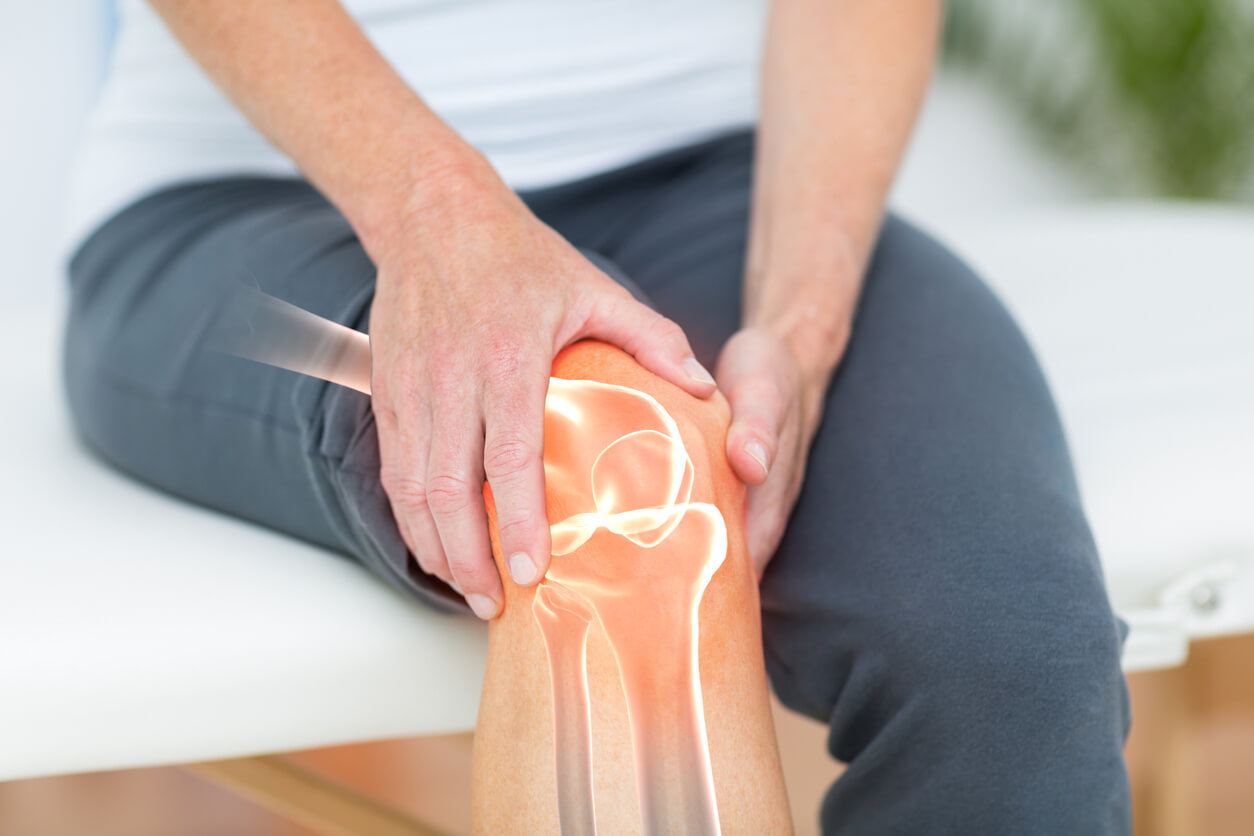With MEFISTO against knee osteoarthritis
The EU project MEFISTO, which has just been launched, aims to take advantage of novel approaches and sets itself the clear goal to successfully counteract the epidemic of post-meniscectomy knee osteoarthritis.
What are the technological innovations of the novel approaches? In contrast to conventional methods, biologically active functionalised nanobiomaterials can interact with the surrounding tissue. The development is therefore aimed at these nanobiomaterials.
Two approaches, one goal
In the first proposed solution, a biodegradable scaffold will promote revascularization in the peripheral zone, while leaving the inner zone avascular, reflecting the native meniscal tissue. In a second approach, functionalization with drug delivery micro/nanoparticles of a non-biodegradable device will provide modulation of inflammation.
Potential relief for national health systems
For most of the 20th century the preferred approach to meniscus treatment was the removal of the damaged tissue (meniscectomy). This practice expanded with the advent of arthroscopy. In recent decades the understanding of meniscal function, and consequently, the management of meniscal injuries, has continued to evolve with increasing commitment among physicians towards the preservation of the meniscus whenever possible. However, based on the observation that meniscal resection is still widely performed, a huge rate of post-meniscectomy osteoarthritis can be expected in the European population in the coming years. In particular, the treatment of osteoarthritis in young to middle-aged patients is challenging, often involving the sacrifice of the patients’ knee joints (metal resurfacing) and represents a social and economic burden for national health systems.
Solutions depending on the stage of osteoarthritis
The project MEFISTO will profile and identify the population of patients who, after meniscal resection, are at higher risk of early compartment degeneration and will provide evidence in vitro and in animal models towards a personalized approach for the patient. Younger patients with early osteoarthritic changes will be addressed by treatment in the form of a controlled vascularized bioactive biodegradable meniscal scaffold, which will regenerate the native meniscus. A bioactive non-biodegradable meniscal prosthesis, acting as a mechanical unloading device and a drug delivery system, with the capacity to modulate the inflammatory environment will be targeted at patients with advanced osteoarthritis. A socio-economic analysis of the efficacy of existing meniscal substitutes will complete the project.
For further information please contact us via www.mefisto-project.eu.
This project has received funding from the European Union’s Horizon 2020 research and innovation programme under grant agreement No 814444 (MEFISTO).
What happens in the MEFISTO project?
Over the next five years, Geistlich Pharma AG, as a leading company in regeneration, and Humanitas University, a prominent international higher education institution dedicated to basic and translational research, will coordinate the MEFISTO project with the help of SCIPROM Sàrl. The data for the meniscus implant design will be prepared by Universiteit Antwerpen and Universitätsklinikum Regensburg. Together with Universitair Medisch Centrum Utrecht, they will perform an In vivo testing of implant vascularisation and animal surgery execution. Consiglio Nazionale delle Ricerche Naples will be responsible for design, preparation and characterization of bio-ink and scaffold. Universidad de Santiago de Compostela will provide their expertise in nanoparticles, growth factors and anti-inflammatory molecules loading and incorporation in the scaffold and Tissue Click Ltd. will lead the functionalisation and scaffolds characterisation contributing the peptide technology. Cell culture conditions, evaluation of cell migration and cell viability will be performed by Établissement français du sang. A non-resorbable meniscus implant with drug delivery capabilities will be developed by Active Implants. The MEFISTO exploitation strategy will be developed by OrthoKey Italia Srl and the health economic model data review, design, programming, validation of HE models will be provided by the AiM GmbH.
The MEFISTO project is backed by the following partners
- Geistlich Biomaterials Vertriebsgesellschaft mbH, CH and Geistlich Pharma AG, DE
- Humanitas University, IT
- Universitätsklinikum Regensburg, DE
- Tissue Click Ltd, UK
- Universidad de Santiago de Compostela, ES
- Universiteit Antwerpen, BE
- Consiglio Nazionale delle Ricerche Naples, IT
- Orthokey Italia Srl, IT
- Etablissement Francais du Sang, FR
- Active Implants, Haarlem, NL
- AiM GmbH – Assessment in Medicine, Research & Consulting, DE
- Universitair Medisch Centrum Utrecht, NL
- SCIPROM Sàrl, CH
